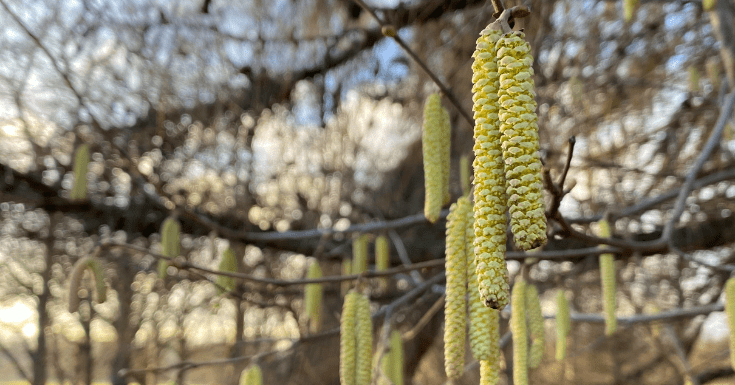If your eyes have begun itching and you’ve endured sneezing fits, there might be a very good reason. Unfortunately, the pollen season is upon us once again.
The asthma and allergy organisation Astma-Allergi Danmark has revealed that it has registered the first pollen spores from alder trees and hazel bushes.
“We’ve actually had our pollen traps going since January 2, due to the warm weather,” said Mathilde Kloster, a biologist Astma-Allergi Danmark’s head of pollen count.
“And if you’re already affected by hayfever symptoms, it could be due to hazel and elder blooming earlier – in your or your neighbours garden – due to favourable conditions in terms of temperature and location.”
READ ALSO: New study: Urban upbringing escalates allergy risk
It’s getting worse
How bad the pollen season will be this year depends on wind and weather conditions. Mild weather and sunshine usually means more pollen.
Astma-Allergi Danmark has measured pollen levels in the air for over 40 years and figures show that the amount of pollen in Denmark has increased considerably in recent years.
That includes birch pollen figures, which affects some 500,000 people in Denmark every year – just under 9 percent of the population.
The pollen season begins earlier and ends later than earlier, while climate change and wild grass growth in urban areas has also contributed to the increase.
Pollen sufferers can stay on top of the pollen levels in Denmark by downloading Astma-Allergi Danmark’s app here.
The app lets users keep tabs on daily pollen figures and gain an overview with a pollen calendar (see below).















